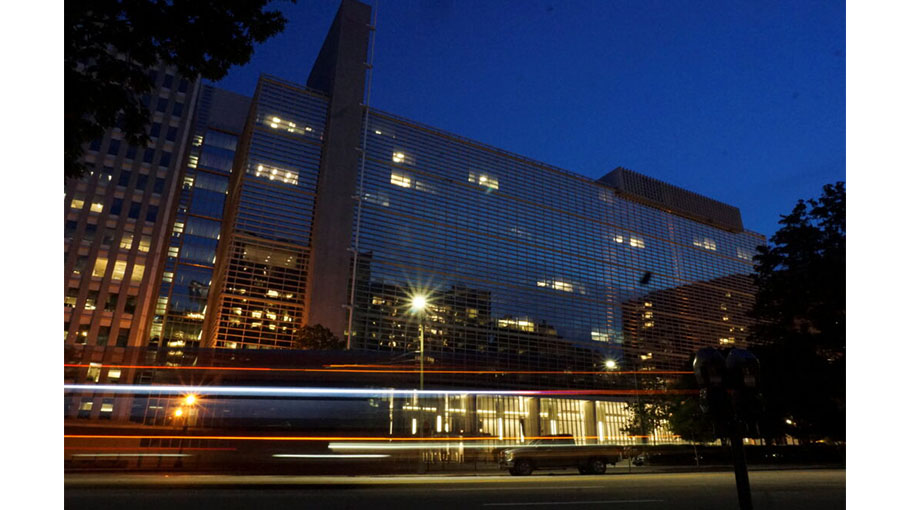Can WB preserve global infrastructure hub’s legacy, support G20’s infrastructure agenda?

Chris Legg
On 8 April 2024, the Global Infrastructure Hub (GIHub) and World Bank announced the GIHub’s integration into the Infrastructure Practice Group as an associated Trust Fund of the Public-Private Infrastructure Advisory Facility. Established in 2015, GIHub is an experiment in multilateralism aimed at more effectively bridge government, development and the private sector in support of the G20’s infrastructure agenda.
The GIHub was conceived during Australia’s 2014 G20 presidency and established under Australian Corporations Law as a not-for-profit limited by guarantee with the Australian federal government and the state of New South Wales its two members. Its governance structure reflects both its corporate status and the agreed voluntary resourcing model.
Like all experiments, the GIHub’s path was not linear. With a small staff, drawn variously from contributing government, development bank secondments and the private sector, its first few years required sharpening the G20’s broad and vaguely defined mandate and more clearly identifying targeted areas of comparative advantage.
In Buenos Aires in July 2018, G20 Finance Ministers agreed to a four-year extension of the GIHub’s mandate, facilitating a significant reset through 2019 driven by new leadership and an extensive internal review of operations and activities. A leaner board structure incorporating both independent and country directors helped enhance efficiency and focus alongside the establishment of an advisory Strategic Council open to all G20 members.
The foundations were laid for the development of a selective suite of well targeted contributions in data, knowledge, innovation, connections and advocacy.
Active engagement with the Finance Track’s Infrastructure Working Group (IWG), and a relationship uncomplicated by a financing role, meant the GIHub emerged as a key partner of successive G20 presidencies and, in the absence of a formal IWG secretariat, a trusted custodian of institutional history and legacy initiatives.
The GIHub’s work on data evolved around its annual Infrastructure Monitor, aggregating existing but often dispersed datasets on the level and performance of private sector infrastructure investment across all sectors over time and Infratracker, the first tool to collate and track public sector infrastructure investments mapped against transformative objectives, a key focus of Italy’s G20 presidency. At the time of transitioning to the Trust Fund, it was working to produce the first G20 member validated estimate of total infrastructure investment, alongside improved classification taxonomies.
Knowledge sharing work also developed in line with successive G20 presidencies’ priorities, such as the Framework for Inclusive Infrastructure during the Argentinian presidency and the focus on scaling up private sector investment in sustainable infrastructure and on Infratech during Indonesia’s presidency. Targeted bespoke capacity building initiatives were supplemented by the dissemination of hundreds of practical case studies.
The GIHub’s comparative advantage was built on its agility, its privileged relationship to the G20 and the ability to bridge the interests and perspectives of both private and public sectors. With a small, highly skilled staff with a diverse mix of public, private and multilateral experience, strong and innovative leadership and an annual budget of around US$8 million (A$12 million), it provided remarkable value for money. Its post-2019 transition was recognised with a 2021 Cultural Transformation Award.
But the sustainability of the GIHub’s corporate and voluntary funding model — expeditious choices at the time — was questioned. G20 members were constrained in funding an Australian corporation. Alongside pervasive domestic fiscal constraints and strong free rider incentives, the GIHub’s funding base progressively narrowed to a small group of donors that included Australia, Canada and Saudi Arabia.
The 2021 G20 agreement to extend the mandate to the end of 2024 came with an understanding that the GIHub Board needed to develop options for alternative legal and governance structures. While the GI Hub’s value was now broadly recognised around the IWG table, a more challenging geopolitical environment would greatly complicate the quest for a consensus.
The option of reconstituting the GIHub as a stand-alone non-treaty based international organisation, located in a jurisdiction able to provide the necessary privileges and immunities and with voluntary funding facilitated via established mechanisms, such as the UNDP, attracted broad support but fell short of the required unanimity. An alternative option, that the OECD host the GIHub, was not attractive to non-OECD members.
The World Bank solution — an unprecedented integration of a public corporation into the Bank implemented in record time —offers the best means of preserving and building on the GIHub’s legacy. In practice, much will depend on the ability, within the Trust Fund structure, to maintain the essence of the GIHub’s autonomy alongside the bank’s lending operations and preserve its comparative advantages: its agility, multi-disciplinary culture and fluency in both public and private sectors.
There remains a significant shortfall in required investment in quality infrastructure that supports efforts to address climate change and underpin sustainable and inclusive development. Progress towards efficient and cost-effective solutions require collective global action. More than ever, the world must remain open to innovative multilateral approaches.
Chris Legg has been Chair of the Board of the Global Infrastructure Hub since 2021, overseeing the development of options for the future of the GIHub and associated negotiations. He is a former senior Australian Treasury official. He has represented Australia and other countries on the Boards of the IMF, World Bank and the Asian Infrastructure Investment Bank and chaired the G20’s Infrastructure Working Group in 2019.
Source: CounterPunch




